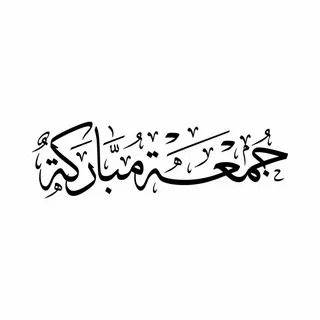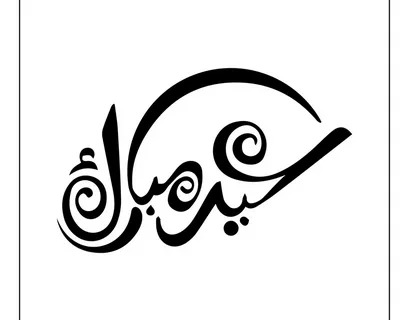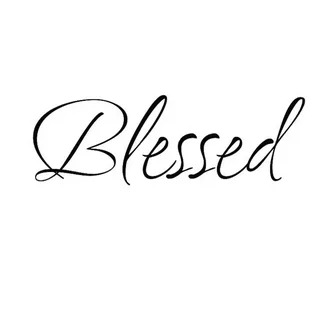The term “blessed”, carrying a weight of divine positivity and grace, permeates through multiple cultures and languages, each interpreting and using it in a distinctly flavorful manner. When it comes to Arabic, a language notably rich in its expressions and historically tied with religious and cultural depth, how does the concept of being ‘blessed in arabic’ weave through its contexts and expressions?, we will explore that in this article on Arabian Tongue website.
Understanding ‘Blessed’

blessed speech includes many meanings, events and positions, and it is of great importance to mention them in different situations:
Recommend: wallahi meaning
Understanding the Cultural Significance
To fathom the depth of the word “blessed” in Arabic, one must first take a dive into the ocean of its cultural and religious significance. A culture rooted in hospitality, benevolence, and a rich tapestry of religious beliefs, the Arab world uses blessings as a way to wish well, showing affection, gratitude, and reverence.
Understanding in the Islamic Context
In the Islamic context, blessings or “Barakah” are seen as a divine bounty and protection that is embedded within physical entities or spiritual realms, multiplying their goodness and positive impact.
Nuances in Translation
“Blessed in arabic” translates to “Mubarak” or “Baraka” in Arabic. However, understanding its use and meaning goes beyond a simple translation. It holds within it a prayer, a positive affirmation, and a wish for divine favor.
Common Phrases and Expressions
“Blessed” is woven into many Arabic phrases. “Eid Mubarak,” for instance, extends festive wishes during Eid, while “Jumma Mubarak” sends blessings for the sacred Friday prayers.
Spiritual Dimension
In Islamic prayers and expressions, “Barakah” is invoked to seek God’s blessings, grace, and increase in goodness and positive influence in one’s life.
The concept of blessings isn’t just confined to Islam but spans across various religions present in the Arabic-speaking world, often finding its expression and integration in varied, unique ways.
Calligraphy of ‘Blessed’

Arabic Calligraphy transforms the word “Mubarak” into an art form, where each curve symbolizes elegance and each dot conveys depth, often embracing walls, canvases, and festive decorations, embedding within them prayers and wishes.
“Blessed” in calligraphy often adorns walls, mosques, and cultural artifacts. Whether it’s in the divine and delicate curves of Thuluth or the geometric beauty of Kufic script, the word becomes not just a message, but a piece of art.
Read more: Subhan Allah meaning
Expressions of ‘Blessed’
Many people echo blessed in different situations and occasions as a kind of compliment:
- In Everyday Life: In casual conversations, blessings are exchanged as greetings, wishes for wellness, and expressions of gratitude, engraving the essence of “Barakah” in everyday life.
- In Formal Occasions and Literature: During formal occasions, literary works, and religious events, the term “blessed” is embossed in speeches, writings, and expressions, reflecting its deep-rooted significance in the Arabic culture.
FAQs
How is the word blessed commonly used in Arabic-speaking countries?
Blessed, or Mubarak, is widely used in various contexts like greetings, well-wishing during festivals, and expressing joy and approval.
What is the significance of the word blessed in Arabic calligraphy?
Arabic calligraphy transforms blessed into an artistic expression, often utilized in decorations, artifacts, and sacred spaces, embodying both visual and spiritual beauty.
Does blessed hold similar meanings across different Arabic cultures and religions?
While it universally signifies positive wishes and divine favor, nuances might differ across different cultures and religions, each embedding its unique interpretations and uses.
How does the concept of being blessed permeate through Arabic literature?
Arabic literature often intertwines the concept of blessings with themes of divine intervention, fate, and benevolence, reflecting through various narratives and poetries.
Can the expression of blessed in Arabic be seen in physical artifacts?
Yes, physical artifacts, especially those infused with Arabic calligraphy, often bear the word Mubarak, symbolizing wishes of prosperity and divine favor.
Conclusion
From every folded prayer mat to the graceful curves of Arabic calligraphy, “Blessed” or “Mubarak” in Arabic isn’t merely a word, but a generous wish, a heartfelt prayer, and an intricate part of cultural and religious expressions. It ebbs and flows through the daily lives of those speaking it, wrapping them in a gentle, divine embrace, symbolizing far more than can be confined within letters and scripts.


